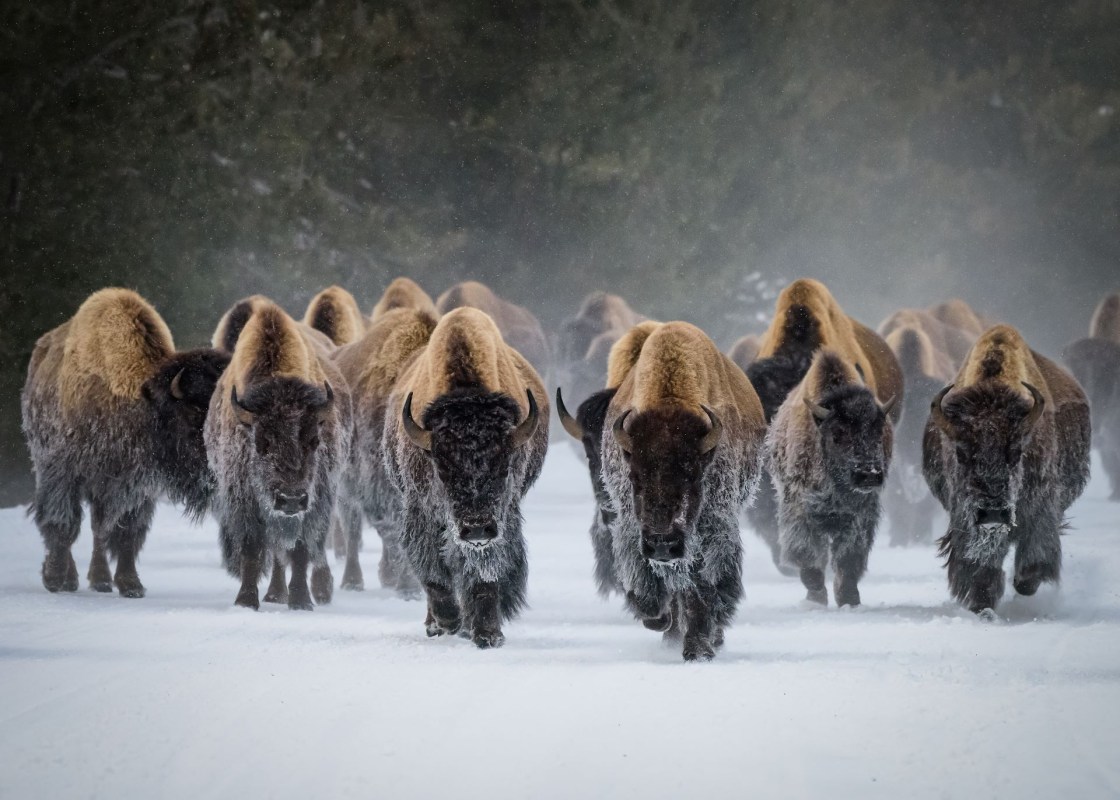A recent study out of Kansas State University has found that reintroducing bison to ecosystems more than doubles plant diversity and richness — leading to lands that are more resistant to droughts.
The study covered more than 30 years of data, where researchers examined plant communities in three settings: one with no grazers present, one where bison were introduced and allowed to graze year-round, and one where domestic cattle were only allowed to graze only during growing season.
The results of bison grazing on the land were nothing short of astounding. Compared to the ungrazed setting, reintroducing bison increased native plant species richness by 103%. That increase resulted in plants that were resilient against the worst drought in four decades. Grazing cattle also helped increase plant richness but by less than half that of bison.
"Bison were an integral part of North American grasslands before they were abruptly removed from over 99% of the Great Plains," Zak Ratajczak, assistant professor of biology and lead researcher, told ScienceDaily. "What this study really suggests is that when it's economically and ecologically feasible, reintroducing bison might have an even more positive effect on biodiversity conservation."
With extreme weather events becoming increasingly more common across the U.S., this finding could be huge for land conservation. In regions such as the U.S. Southwest, droughts are expected to get more frequent, intense, and longer lasting.
A natural solution, like the reintroduction of a species, could be a simple solution to a complicated problem.
"The research done at the Konza Prairie is truly unique and impressive," David Rosowsky, vice president for research at Kansas State, said. "There are very few locations in the world that can provide this type of long-term data that can have such a strong impact on how we interact with our natural resources."
Join our free newsletter for cool news and cool tips that make it easy to help yourself while helping the planet.









